Table of Contents
Klein Bicycles
Gary Klein started producing road bikes built with oversized, light weight TIG welded aluminum tubing in 1976. He pioneered many design and processes resulting in 18 patents producing consistent, very high quality bicycles. By the time Klein started making mountain bikes, all production was in Chehalis, WA and would continue there until 2002, long after Klein Bicycles was bought by Trek in 1995. 1)
Klein bikes became famous for their paintwork, culminating in their “linear fade” colors which were introduced in 1992. Other unique details included interior cable routing 2), square chain stays, super smooth large welds, and the lightest and strongest 3) bikes available.
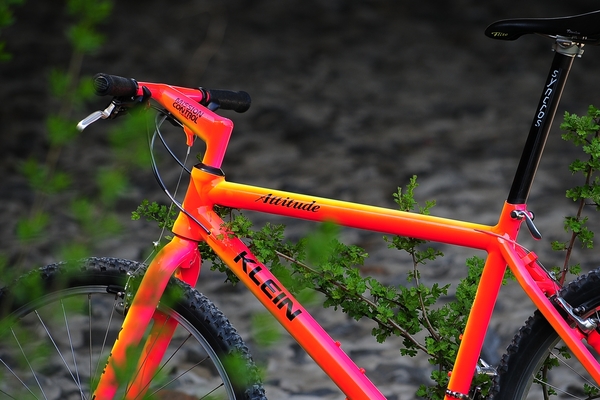
1993 Attitude with Sunburst linear fade.
mtb-news.de
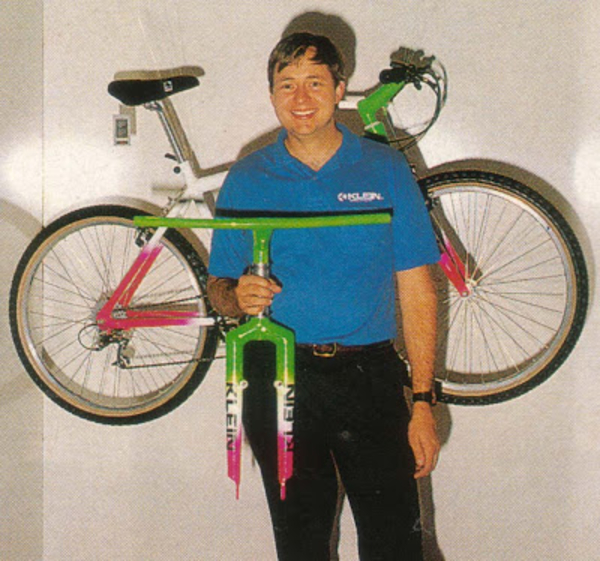
Gary Klein, 1990
diabloscott
1983? Mountain Klein Prototype
The date is just a guess and is relying upon the date from the old Klein website.
Cantilever brakes 4), bullmoose stem, weird fork crown, internal chain stay cable, dual decals, SunTour? components.
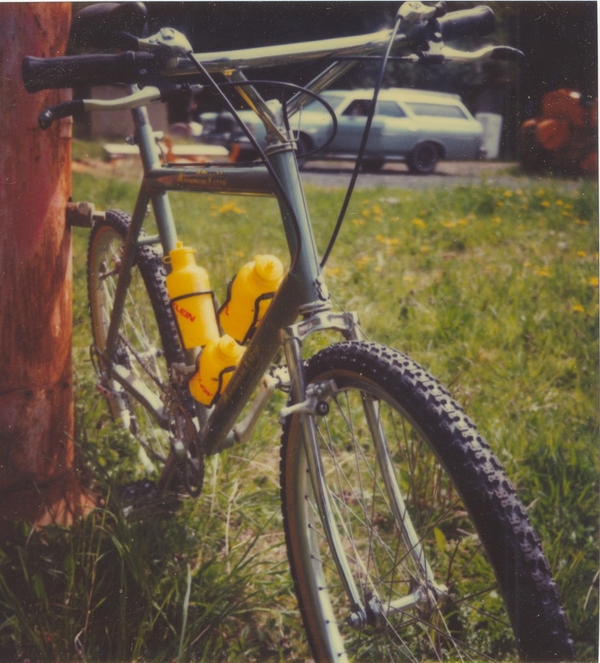
1983 prototype, photo by Charlie Kelly.
mtbr
1984 Mountain Klein
Klein's now defunct website states that:
1983: Mountain Klein was started, featuring a chain stay mountain U-Brake or a roller cam brake. archive of kleinbikes.com
However, no authenticated photos of either a 1983 or 1984 Mountain Klein can be found. There are a few promising mislabeled photos of Kleins with original components which are period correct for 1984. The example on the right uses a SunTour Cyclone MkII front derailleur, which was in production from 1981→1984 and a Deerhead Version 1 rear derailleur which was in production from 1983→1984. Note the radial spokes, cantilever breaks, internal chain stay cable and top tube decals, which are not seen on later Mountain Kleins.
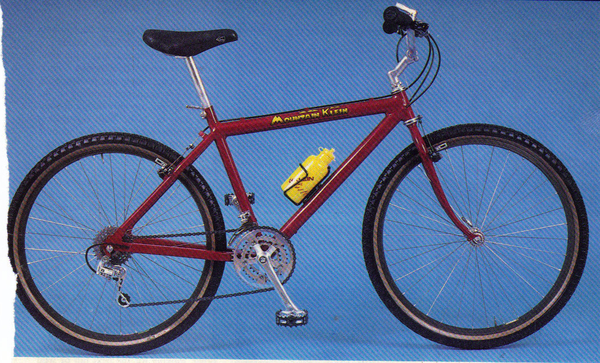
1984? Mountain Klein
mombat
1985 Mountain Klein
1985 is the likely first year of true production, as many examples can be found online. Painted forks, internal chain stay cable routing, SunTour XC derailleurs, rear roller-cam brakes, lowered decals. The black crank arms are likely original.
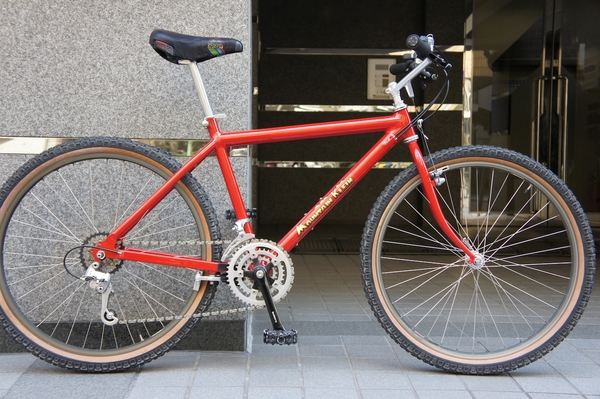
1985 Mountain Klein
mtbr
1986 Mountain Klein
External rear derailleur cable. Shimano 600EX road triple crankset. Chrome forks. Rear non-roller-cam u-brakes.
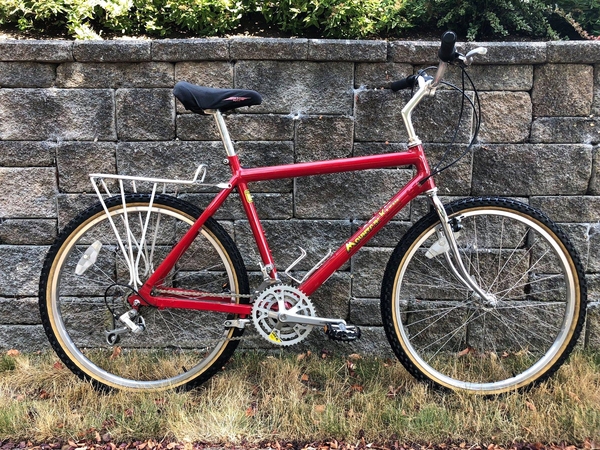
1986 Mountain Klein
flickr
1987 Mountain Klein
This is an example of a “Kleiningham,” an attempt to get a bike as close as possible to the impossible to obtain Cunningham. Hence it was modified to have a Steven Potts/WTB fork, stem, headset, brakes, seat post and toe flips - all on unpainted aluminum.
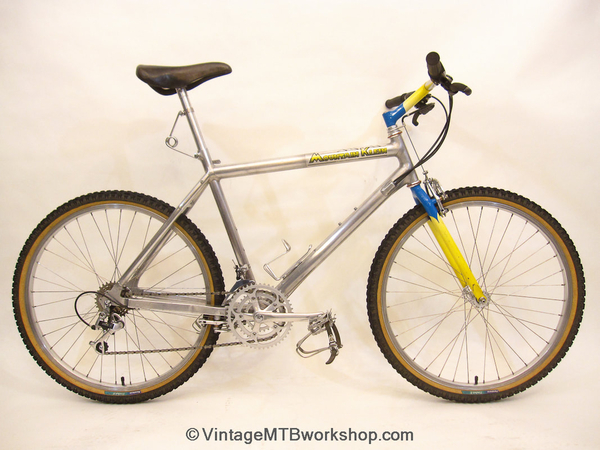
1987 Mountain Klein
vintagemtbworkshop
1988 Pinnacle
By this point Klein had branched out the MTB line into Mountain Klein, Pinnacle, and Top Gun 5) Even better, Klein introduced cool paint jobs at this point 6)
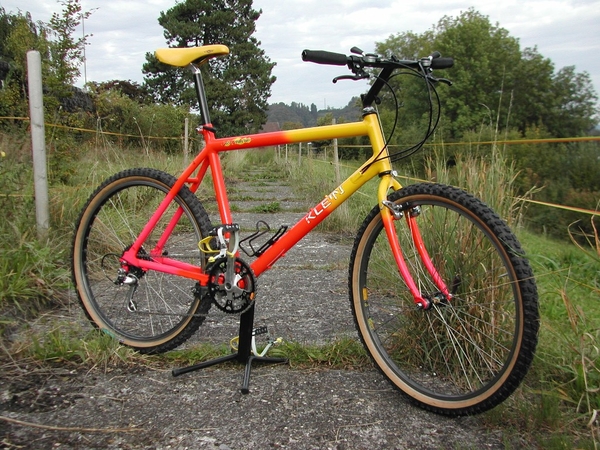
1988 Pinnacle
mtbr
1989 Mountain Klein
This is painted in the Aurora scheme. Many paint styles were available.
Rear cantilever brakes.
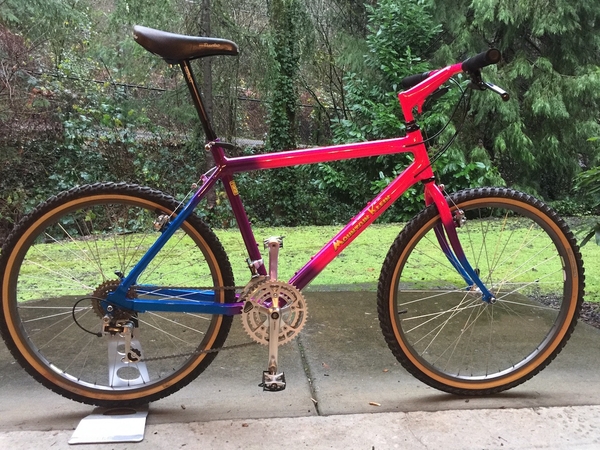
1988 Mountain Klein
retrobike
1990 Attitude
The traditional watermelon “Team USA” scheme.
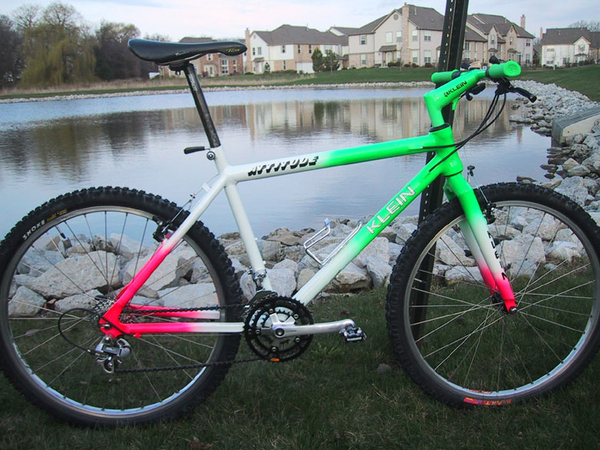
1990 Attitude
wundel
1991 Attitude
“Backfire” paint scheme.
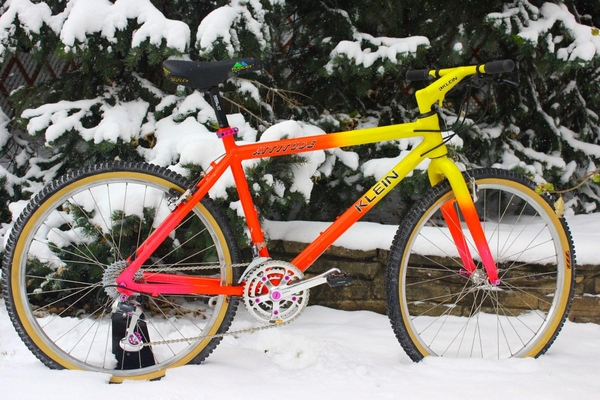
1991 Attitude
bike recyclery
1992 Attitude
Horizon linear fade. Full XTR gruppo - the first year that Shimano offered XTR. A flawless bike.
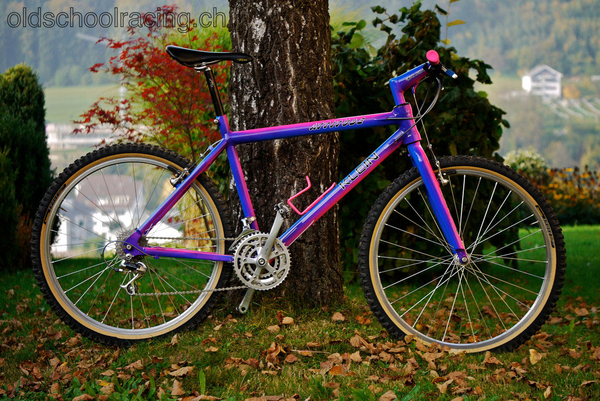
1992 Attitude
oldschoolracing
